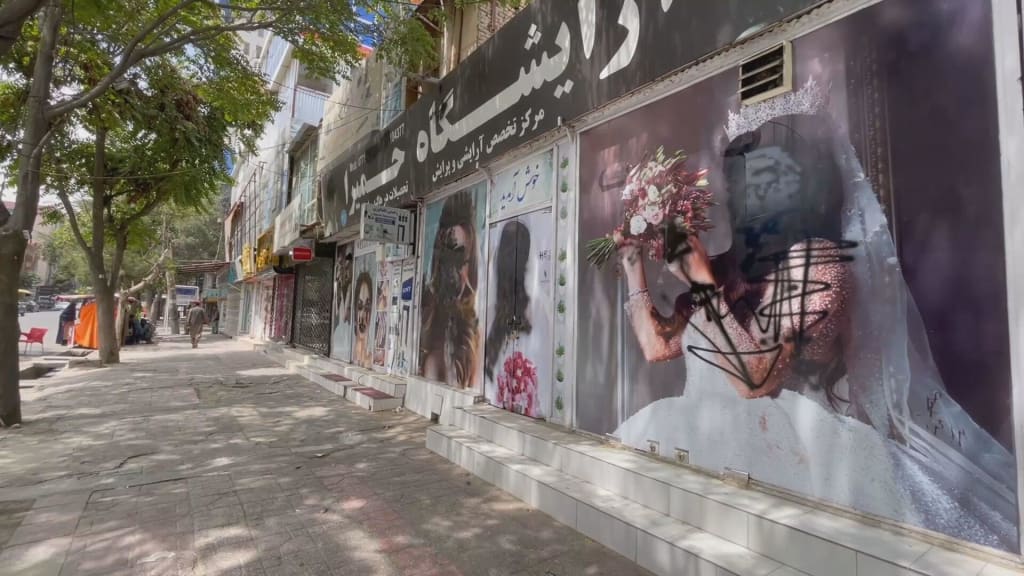News You Should Care About: Taliban Imposes Ban on Hair and Beauty Salons in Afghanistan
Taliban's Restriction on Hair and Beauty Salons in Afghanistan Deepens Concerns over Women's Rights and Economic Empowerment

The recent resurgence of the Taliban in Afghanistan has brought with it a wave of regressive policies that severely curtail the rights and freedoms of Afghan women. In a concerning move, the Taliban has issued an order to shut down all hair and beauty salons across the country, adding to the growing list of restrictions faced by women. This article explores the significance of this latest directive, its implications for women's autonomy and livelihoods, and the broader implications for gender equality in Afghanistan.
Suppression of Women's Rights under the Taliban
The Taliban's previous rule from 1996 to 2001 was marked by the systematic oppression and marginalization of women. During this time, Afghan women were denied access to education, healthcare, employment, and public life. They were subjected to strict dress codes and gender segregation, effectively eroding their fundamental rights and freedoms. The closure of hair and beauty salons under the Taliban's current regime raises concerns about a return to these repressive practices.
The Role of Hair and Beauty Salons in Afghan Society
Hair and beauty salons hold significant cultural and social importance in Afghan society, particularly for women. These establishments have served as spaces of personal expression, creativity, and community building. Hair and beauty salons have been instrumental in empowering women by providing them with opportunities for economic independence and entrepreneurship. By shutting down these establishments, the Taliban not only restricts women's personal freedoms but also jeopardizes their economic well-being.
Implications for Women's Autonomy and Livelihoods
The closure of hair and beauty salons represents a severe blow to Afghan women's autonomy and agency. These establishments have provided women with the means to express themselves, experiment with their appearance, and engage with others in a safe and supportive environment. By imposing such restrictions, the Taliban aims to suppress women's voices and erase their presence from public spaces. Moreover, the closure of salons threatens the livelihoods of countless Afghan women who rely on them for employment and income generation.
Challenges to Gender Equality
The Taliban's ban on hair and beauty salons is emblematic of a broader assault on gender equality in Afghanistan. It serves as a stark reminder of the deep-seated gender disparities that persist in Afghan society, hindering women's progress and undermining the gains made in the past two decades. The closure of these establishments not only reinforces traditional patriarchal norms but also instills fear and uncertainty among women who have strived for greater rights and freedoms.
International Response and Support
The international community has expressed deep concern over the Taliban's imposition of restrictions on women's rights in Afghanistan, including the closure of hair and beauty salons. Various countries, human rights organizations, and women's rights advocates have condemned these actions and called for the protection of women's rights in line with international standards. There is a pressing need for sustained international support, both in terms of advocacy and practical assistance, to protect and uplift Afghan women during this challenging period.
Women's Resilience and Hope
Despite facing immense challenges, Afghan women have demonstrated remarkable resilience and determination throughout history. They have been at the forefront of social and political change, advocating for their rights and the rights of future generations. It is crucial to amplify their voices, recognize their agency, and support their efforts to safeguard the progress made in women's rights. Afghan women deserve the opportunity to lead lives of dignity, equality, and self-determination.
Conclusion
The Taliban's order to close hair and beauty salons in Afghanistan represents another distressing restriction on women's rights and freedoms. It exacerbates existing gender inequalities and threatens the autonomy and economic well-being of Afghan women. The international community must continue to stand in solidarity with Afghan women, advocating for their rights.





Comments
There are no comments for this story
Be the first to respond and start the conversation.